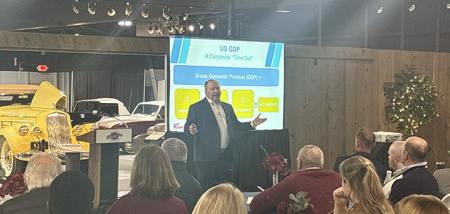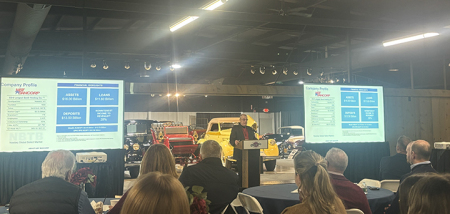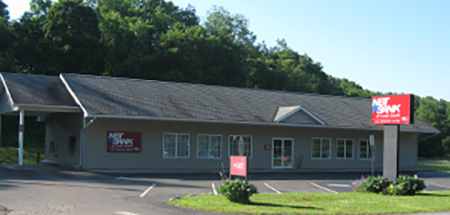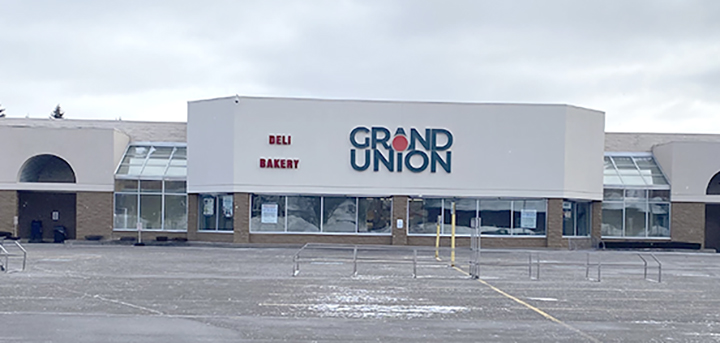Business Leaders Urge City To Take Legal Action Against Neglectful Property Owners
Published:
July 29th, 2025
By:
Shawn Magrath
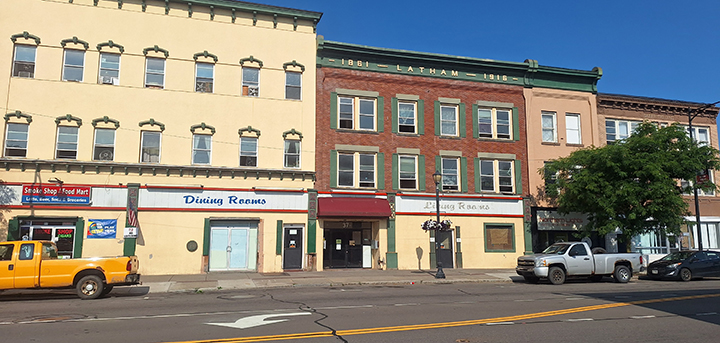 Nuisance properties in downtown Norwich, where city officials have issued numerous police and codes violations over the years. The Chenango IDA is now urging the city to take a new approach with blighted properties that could become a model for other Chenango County municipalities dealing with similar issues. (Photo by Shawn Magrath)
Nuisance properties in downtown Norwich, where city officials have issued numerous police and codes violations over the years. The Chenango IDA is now urging the city to take a new approach with blighted properties that could become a model for other Chenango County municipalities dealing with similar issues. (Photo by Shawn Magrath)
NORWICH – Citing little to no results of the city’s past attempts to clean up blighted properties, the Chenango County Industrial Development Agency (IDA) is now urging the Norwich officials to take a new approach .
The IDA is pushing the city to defer to expert municipal lawyers, a move that could ultimately result in legal action taken against property owners who fail to address a slew of code violations issued by city departments.
The IDA has recently consulted attorneys at Harris Beach Murtha, a northeast law firm that specializes in municipal and local agency litigation. While not seeking to become a lead agency in the fight against negligent property owners, the IDA says its ultimate goal for the city is to see nuisance properties cleaned up, thereby firming a $10 million state investment through New York’s Downtown Revitalization Initiative (DRI) program.
The IDA board is open to becoming an intermediary between the City of Norwich and hired legal representation, though the board hasn’t committed to any financial backing.
“Frankly the city has not made any traction in the last two and half years I’ve been here to address those nuisance buildings, and they’ve tried a number of times to do that. We’re trying to give them a solution just to show them it can be done,” said Sal Testeani, Commerce Chenango president and CEO.
Nuisance properties are an eysore for the City of Norwich, primarily in the business district where three buildings at the corner of North Broad and Fair Street have received numerous code violations.
Norwich Mayor Brian Doliver said the city is entertaining a call for more aggressive legal action against negligent property owners that goes above and beyond the city’s nuisance ordinance.
“We’re kind of at a loss of what to do with these properties, and it’s not just downtown,” said Doliver. “We’re at a point where problems are constant, whether it’s with police or codes. It’s one of those things where we have to put everything on the table, and it’s at a point where we need to seriously discuss some of those things.”
“We’re very simple; we’re not asking for much. We just want to see them cleaned up,” he added.
Joseph Frateschi, an attorney with the Harris Beach Murtha Law Firm of Syracuse, says Norwich’s situation isn’t unique. He’s represented municipalities across Onondaga County that have seen their own challenges with properties dubbed a "nuisance” under municipal law. Such properties, per law, interfere with citizens outside of the property, often in ways that hinder enjoyment, health, or safety of a neighboring property.
Frateschi proposed to the IDA two possible solutions that the City of Norwich could employ for blighted properties. Either the city can target the proprietor with a violation and assess costs against the property; or the city could pursue litigation against the property owner in the state supreme court.
Frateschi said he prefers the latter. There’s more predictability and stability in supreme court proceedings, he said, given rules that lower courts don’t necessarily need to follow.
“In my experience, these are dilapidated properties. They’re abandoned properties for the most part,” said Frateschi. “The property owners don’t, in these cases, actually have the funds to maintain their properties; so the likelihood of them affording an attorney to litigate and defend these cases is very low.”
If the City of Norwich pursues litigation, the judge may grant an order for city officials to clean up the property and have costs assessed on the tax roll. Once they’re assessed, if those costs aren’t paid by the owner, the city can begin a foreclosure process and seize the property to transfer to a land bank, if one is formed in Chenango County, or to a local development corporation.
One challenge officials may face is that the county doesn’t have a land bank. The IDA is considering a solution of working with graduate students from SUNY Binghamton to help form one.
But the question many IDA board members still have is: Who foots the bill? With expenses ranging between $5,000 to more than $100,000 (if the proprietor attains a lawyer), Frateschi said it’s difficult to say what costs will be at the outset.
“They [Harris Beach Murtha] have a lot of experience doing this, so I don’t question the validity of it working. I question the validity of us flipping the bill,” said IDA Vice-Chair Brian Burton. “I am not comfortable with us spending our money on this. I am 100 percent against it. We are not the ones getting reimbursed if the property owners do pay. The city is.”
Burton said that the IDA’s role ought to be as a facilitator between the attorneys and the city as necessary, but the agency should shy away from financing legal efforts.
“The reason to do this is to show people it can be done and overcome every single objection as to why it can’t be done,” Testani said, noting that the legal process would be cleaner if the city takes the mantle on the litigation process. “Until somebody does it, nobody will.”
The IDA aims to use Norwich as a model to deal with blighted areas, in cases where proprietors pay their taxes but neglect their properties. The agency says there are other municipalities throughout the county that face similar issues, and lessons can be learned by what happens in the City of Norwich.
“We’re looking to establish a process in helping municipalities that all deal with some kind of building issues in their respective towns. The city is just the logical place to start because they have a variety of structures,” said IDA Vice-Chair RC Woodford. “We can’t necessarily pick one out, but let’s just build a template of what this could look like. Really, our goal as an IDA is to help them get to where they want to go.”
Frateschi and other representatives of Harris Beach Murtha have been invited to speak to the City of Norwich Common Council at its August meeting. Mayor Doliver said the council will have to make a decision about where to go from there.
“This is something we take seriously,” said Doliver, referencing nuisance properties located throughout the city. “We don’t take it lightly to take someone’s property when they’ve paid their taxes. But we feel like we’re at a point where this has gotten ridiculous, just constant issues whether it be police or codes.”
Author: Shawn Magrath - More From This Author
Comments
